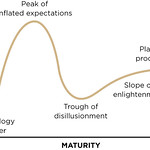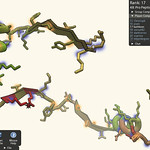Playful Design

Creating Game Experiences in Everyday Interfaces
Game design is a sibling discipline to software and Web design, but they’re siblings that grew up in different houses. They have much more in common than their perceived distinction typically suggests, and user experience practitioners can realize enormous benefit by exploiting the solutions that games have found to the real problems of design. This book will show you how.
Game design is a sibling discipline to software and Web design, but they’re siblings that grew up in different houses. They have much more in common than their perceived distinction typically suggests, and user experience practitioners can realize enormous benefit by exploiting the solutions that games have found to the real problems of design. This book will show you how.
Testimonials
For UX designers eager to go beyond simple points and badges, it’s been hard to find resources that truly bridge the worlds of UX and game design. John Ferrara’s thorough, thoughtful, and practical book is just what we’ve been waiting for.
Jesse James Garrett, Author, The Elements of User Experience
The hype around games and gamification for learning, social change, and impact has hit warp speed. Playful Design is a brilliant beyond-the-hype book that truly sifts the gold from the dross. It is a must read for anyone interested not just in games, but in designing engaging and meaningful human experiences.
James Paul Gee, Mary Lou Fulton Presidential Professor of Literacy Studies, Arizona State University, Author of What Video Games Have to Teach Us About Learning and Literacy
This book couldn’t be more timely: Playful Design delivers a concise introduction to the theory, experience, and design of games for nongame designers, blended with fresh personal takes. Trust John Ferrara to get you started building games for learning, persuasion, or real-world action in one small, handy volume.
Sebastian Deterding, designer and game researcher, coding conduct
John Ferrara cuts through the hype and provides a concise, practical, and insightful summary of issues every designer needs to consider in venturing into this challenging yet promising field.
Scot Osterweil, Creative Director, MIT Education Arcade
A central challenge in the field of UX is learning to adapt to the ever-changing world in which UX is practiced. One of the most important megatrends in the world is the increasing use of serious games to solve complex problems. John Ferrara’s book provides a useful reference to help UX designers expand their repertoire by learning the basics of game design and how to apply these skills to create engaging and compelling experiences.
Luke Hohmann, Founder and CEO, The Innovation Games® Company
What can the field of UX learn from game design? To answer this question, John Ferrara examines the underlying mechanics behind some familiar (and less familiar) games. But be prepared, you’ll come away with more than a few new tools and ideas added to your design toolbox!
Stephen P. Anderson, Author, Seductive Interaction Design
Table of Contents
Foreword by Sunni Brown
Chapter 1: Why We Should Care about Games
Chapter 2: Understanding Games
Chapter 3: The Elements of Player Experience
Chapter 4: Player Motivations
Chapter 5: Ten Tips for Building a Better Game
Chapter 6: Developing a Game Concept
Chapter 7: Creating Game Prototypes
Chapter 8: Playtesting
Chapter 9: Behavioral Tools
Chapter 10: Rewards in Games
Chapter 11: Games for Action
Chapter 12: Games for Learning
Chapter 13: Games for Persuasion
Chapter 14: How Games Are Changing
FAQ
These common questions about video games and design and their short answers are taken from John Ferrara’s book Playful Design: Creating Game Experiences in Everyday Interfaces. You can find longer answers to each in your copy of the book, either printed or digital version.
- What do you mean when you refer to “video games”?
Throughout this book, I use the phrase “video games” to refer to computer-mediated games of all types, from World of Warcraft to Words with Friends. This may be a more general usage than a purist would select, but I use it because it’s a conventional and recognizable way to distinguish this subtype of games from other forms. I use the term “games” to refer to the broader class of experiences that includes video games as well as board games, sports, card games, gambling, and so on.
A more robust discussion of what it means for something to be a game or a video game is found in Chapter 2.













